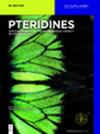上调HTR1A通过调节前扣带皮层、岛叶皮层和海马之间的相互作用逆转应激诱导的内脏超敏反应
IF 0.9
4区 医学
Q4 BIOCHEMISTRY & MOLECULAR BIOLOGY
引用次数: 0
摘要
摘要背景:本研究旨在探讨5-HT1A受体(HTR1A)对前扣带皮层激活及同时调节岛叶皮层和海马神经活动的影响。方法:采用慢性避水应激法(was)建立IBS大鼠模型。用肌电图测量内脏敏感性,用开场试验评估焦虑样行为。用表达绿色荧光蛋白的HTR1A特异性慢病毒过表达或下调HTR1A的表达。western blot检测蛋白表达水平。结果:ACC中上调HTR1A可抑制ACC致敏,逆转慢性心理应激引起的内脏超敏和焦虑样行为。相反,ACC中HTR1A的下调可能会促进IBS大鼠的这些行为。此外,ACC中上调HTR1A可抑制IC和海马致敏,而下调则可能具有相反的作用。结论:在IBS大鼠中,HTR1A可以调节ACC的激活以及ACC、IC和海马之间的相互作用。这些影响可能反过来促进由慢性心理压力引起的内脏过敏和焦虑样行为的发展。本文章由计算机程序翻译,如有差异,请以英文原文为准。
Up-regulation of HTR1A reverses stress-induced visceral hypersensitivity through modulating interactions among the anterior cingulate cortex, insular cortex and hippocampus
Abstract Background: This study aimed to explore the effect of 5-HT1A receptors (HTR1A) on activation of the anterior cingulate cortex and simultaneous regulation of neural activity in the insular cortex and hippocampus. Methods: The IBS rat model was established via chronic water avoidance stress (WAS). Visceral sensitivity was measured by electromyogram, and anxiety-like behaviours were evaluated by the open field test. HTR1A-specific lentivirus expressing green fluorescent protein was used to overexpress or down-regulate HTR1A expression. Protein expression levels were detected by western blot. Results: Up-regulation of HTR1A in ACC could inhibit ACC sensitization and reverse the visceral hypersensitivity and anxiety-like behaviours induced by chronic psychological stress. In contrast, down-regulation of HTR1A in ACC might promote these behaviors in IBS rats. Additionally, up-regulation of HTR1A in ACC could inhibit IC and hippocampus sensitization, while down-regulation might have the opposite effect. Conclusions: In IBS rats, HTR1A could modulate ACC activation and interactions among the ACC, IC and hippocampus. These effects might in turn contribute to the development of visceral hypersensitivity and anxiety-like behaviours induced by chronic psychological stress.
求助全文
通过发布文献求助,成功后即可免费获取论文全文。
去求助
来源期刊

Pteridines
生物-生化与分子生物学
CiteScore
1.20
自引率
25.00%
发文量
6
审稿时长
>12 weeks
期刊介绍:
Pteridines is an open acess international quarterly journal dealing with all aspects of pteridine research. Pteridines are heterocyclic fused ring compounds involved in a wide range of biological functions from the color on butterfly wings to cofactors in enzyme catalysis to essential vitamins. Of the pteridines, 5,6,7,8-tetrahydrobiopterin is the necessary cofactor of several aromatic amino acid monoxygenases, the nitric oxide synthases and glyceryl ether monoxygenase (GEMO). Neopterin plays an essential role in the immune system and is an important biomarker in laboratory medicine for diseases such as HIV, cardiovascular disease, malignant tumors, among others.
Topics:
-Neopterin, dihydroneopterin, monapterin-
Biopterin, tetrahydrobiopterin-
Folates, antifolates, riboflavin-
Phenylalanine, tyrosine, phenylketonuria, serotonin, adrenalin, noradrenalin, L-DOPA, dopamine, related biogenic amines-
Phenylalanine hydroxylase, tyrosine hydroxylase, tryptophan hydroxylase, nitric oxide synthases (iNOS), alkylglycerol monooxygenase (AGMO), dihydropterin reductase, sepiapterin reductase-
Homocysteine, mediators of inflammation, redox systems, iron.
 求助内容:
求助内容: 应助结果提醒方式:
应助结果提醒方式:


